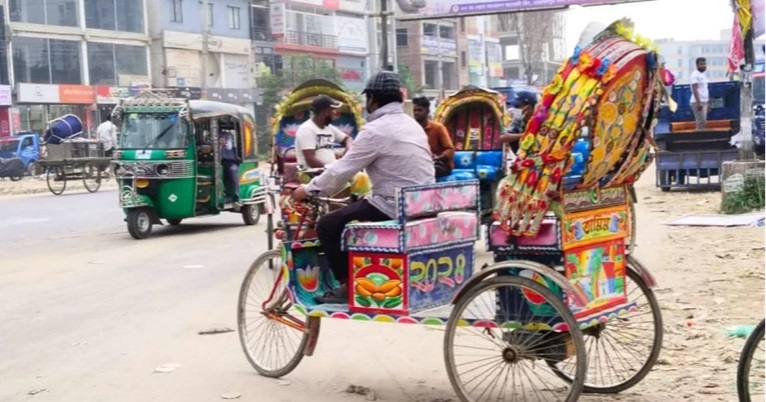Tougher policy soon to regulate battery-run rickshaws in Bangladesh


The government has taken a move to introduce a tougher new policy to regulate the rampant and risky movement of unregistered battery-operated three-wheelers, commonly known as electric auto-rickshaws or easy bikes across the country, including the capital.
The reckless movement of these vehicles has created chaos on city roads and highways, leading to worsening traffic congestion and increasing accident risks.
The government attempts to remove them from major roads in Dhaka failed to see success amid protests and movements by drivers and owners.
Although there is no definite count, the Bangladesh Road Transport Authority (BRTA) estimates that there are over 60 lakh battery-run rickshaws in the country with 10 to 12 lakh operating in Dhaka alone.
To bring discipline in their operation, the draft of the 'Electric Three-Wheeler Management Policy 2025' has been prepared by the Road Transport and Highways Division under the Road Transport and Bridges Ministry.
As per the draft policy, all battery-operated three-wheelers must be registered with the Bangladesh Road Transport Authority (BRTA) and drivers must obtain valid driving licenses.
The vehicles will be restricted to designated routes outside national highways with separate limits set for medium- and low-speed electric three-wheelers.
A passenger and goods transport committee formed under the Road Transport Act will determine how many vehicles can operate in an area.
Road Transport and Highways Division Secretary Ehsanul Haque told UNB that the uncontrolled growth of fitness-lacking battery-run rickshaws has disrupted traffic systems nationwide.
A draft for a news policy has been prepared to bring them under regulation and that stakeholder feedback is now being reviewed, he said.
“We hope the policy will be approved very soon. Once implemented, it will end the ongoing disorder caused by unregulated electric rickshaws,” he added.
As per the draft, one person can own a maximum of three medium-speed and five low-speed rickshaws.
All rickshaws must be transformed into safe models within a year, according to the draft.
It says medium-speed rickshaws will be limited to a maximum speed of 50 km/h, and low-speed rickshaws to 30 km/h.
The vehicles must be constructed following BRTA-approved designs and only parts and components approved by the Bangladesh Standards and Testing Institution (BSTI) will be allowed.
All components such as motors, controllers, gearboxes, axles, wheels, brakes, headlights, shock absorbers, batteries and chargers must be BSTI-approved and manufacturers and assemblers must be registered with BIDA (Bangladesh Investment Development Authority).
All imported or locally assembled electric three-wheelers and parts must have BRTA approval and only new vehicles and new parts (BSTI-approved) can be imported.
Charging stations must comply with the 2021 guidelines issued by the Power Division.
BRTA will set fares for these vehicles.
Manufacturers must be listed by BRTA and cannot operate without being listed.
The vehicle must display the owner and driver's contact numbers visibly for passengers.
BRTA will arrange district-level training for drivers in consultation with local transport committees.
According to the draft, electric three-wheelers will not be allowed on national highways except in service lanes.
These will be allowed to operate in designated areas, including city corporations, ‘A’ category municipalities, district, upazila and union-level local roads.
Only local passengers and goods transport committees will determine the number and route allocations in these areas.
On the matter of penalties, the draft clearly states that violations will be addressed as per the Road Transport Act 2018, and necessary legal action will be taken against offenders.
Regarding the timeline, all current unsafe low-speed vehicles must be converted to safe models within one year as per the Electric Motor Vehicle Registration and Operation Policy 2023.
After this deadline, unapproved vehicles will be subject to legal action.
The draft also stressed the need for a complete phase-out of unauthorised locally made vehicles such as diesel and petrol-engine vehicles used in agriculture and waterways.
Local transport committees are to replace them with approved alternatives.
